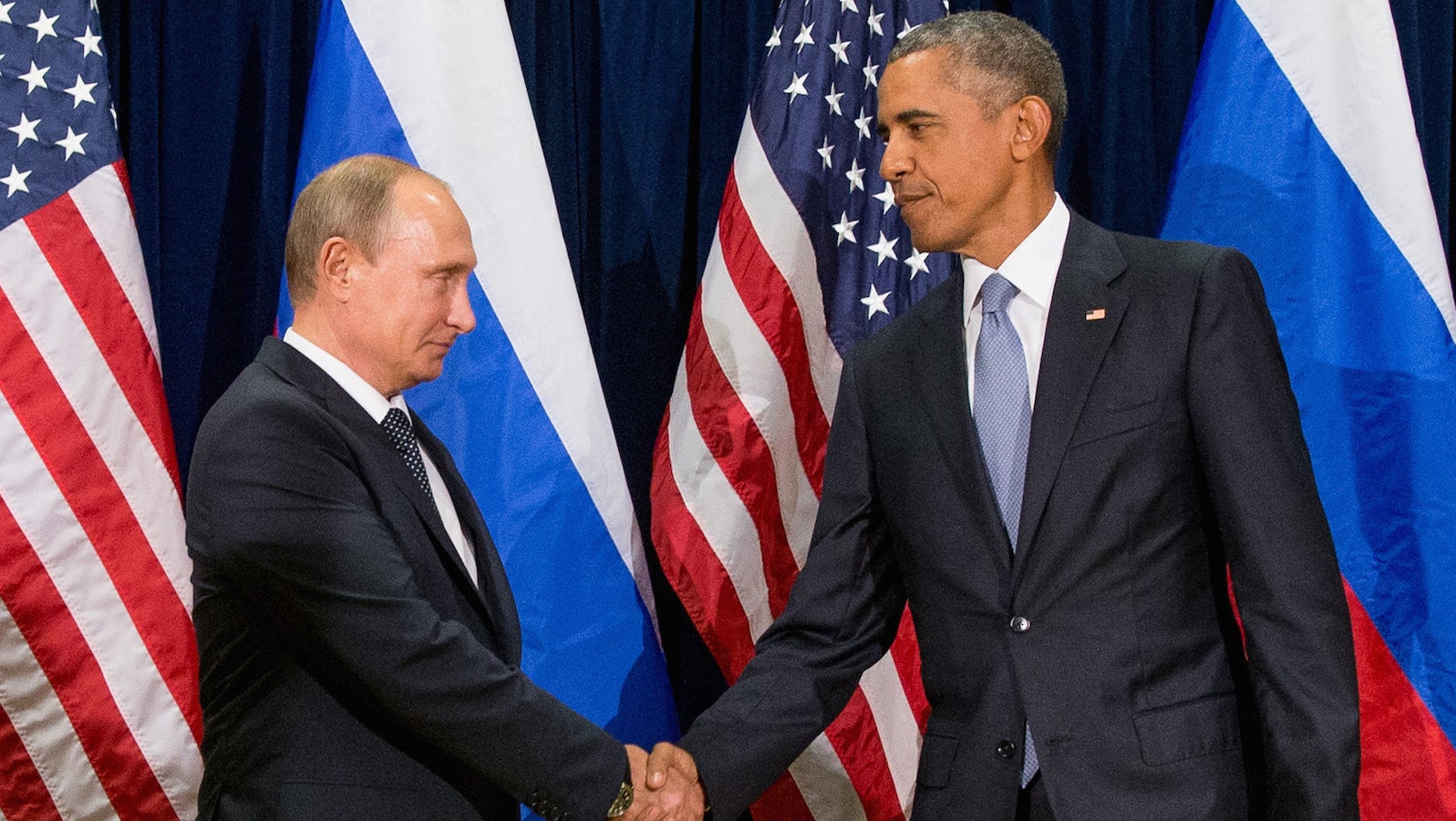The DNC email leaks could be payback from Russia for American meddling in foreign elections
The news that Russia is the likely culprit behind the Democratic National Committee email hack may strike some Americans as an odd throwback to Cold War-era espionage. But a closer look at recent foreign policy suggests that Russia’s efforts to intervene in US politics—while troubling—are entirely predictable.


The news that Russia is the likely culprit behind the Democratic National Committee email hack may strike some Americans as an odd throwback to Cold War-era espionage. But a closer look at recent foreign policy suggests that Russia’s efforts to intervene in US politics—while troubling—are entirely predictable.
For a quarter century, the US has sought to strengthen democracy in former Soviet countries such as Georgia, Ukraine, and Kyrgyzstan. The American government has offered support for those countries’ civil society organizations, given technical guidance to key political parties, and undergone an effort to make their legislatures more functional. Washington views these efforts as part of a global mission to expand democracy and freedom. In Moscow, however, such moves are seen as imperialist meddling in Russia’s backyard.
Moreover, Moscow views civil protests and popular revolutions such as Georgia’s Rose Revolution in 2003, Ukraine’s Orange Revolution in 2004, and Ukraine’s Euromaidan movement in 2013-2014 as US-backed coups aimed at limiting Russian influence in the region. The US has claimed neutrality in all elections in the region, but Russia sees this as nonsense. And Russia is not entirely wrong here. Although many in Washington are hesitant to admit it, the US never takes sides in foreign elections, except when we do.
None of this justifies Russia’s probable involvement in the DNC email leaks. But understanding the context can make the country’s actions more easily understood. One of the many paradoxes of US policy is that we become involved in the politics of foreign countries in an effort to promote democracy, but we would never tolerate any foreign country attempting to take a similar role (or a much smaller one) in our own politics. Many conservatives chafe at the mere idea of foreign election monitors observing American elections, despite US efforts to observe and monitor elections in many foreign countries.
The Kremlin has a clearly preferred candidate in this election—and it is not the hawkish former Secretary of State, whom president Vladimir Putin believes to be responsible for post-election demonstrations in Russia in 2011. From Russia’s self-serving perspective, the US has long meddled in elections in their part of the world, so there is no reason why Russia should not meddle in ours.
Russia probably understands that this is something of a false equivalency, given that the US has not sought to influence Russian elections in a way comparable to the DNC email hack. But they don’t care, especially if their efforts can help Donald Trump get elected. For many years, part of Putin’s political strengths in working with the West has been his ability to muddy the waters of perception around issue of democracy and elections. He has helped create fake election observation groups to mirror legitimate Western ones. He has mobilized pro-government demonstrators, often through cash payments, to protest in Ukraine and elsewhere. With such a history of twisting the tactics and rationale of democracy to pursue his own interests, the US should not be surprised if it finds itself a target.
If, as it seems to be the case, Russia is behind the hacks and leaks at the DNC, Americans have every right to be outraged. However, we would be wise to temper some of that outrage by recognizing that our efforts to globalize democracy have provided a raison d’être for Moscow’s actions, and make them seem considerably less outrageous to much of the rest of the world. This may also be a moment to reflect on the fact that 25 years of US efforts to promote democracy abroad have changed international notions of sovereignty—particularly in places like Moscow and Beijing, which perceive US actions as meddling.
None of this makes what Russia did right or justifiable. But it may force us to think about the impact of this critical foreign policy, and what it could mean for America’s future.